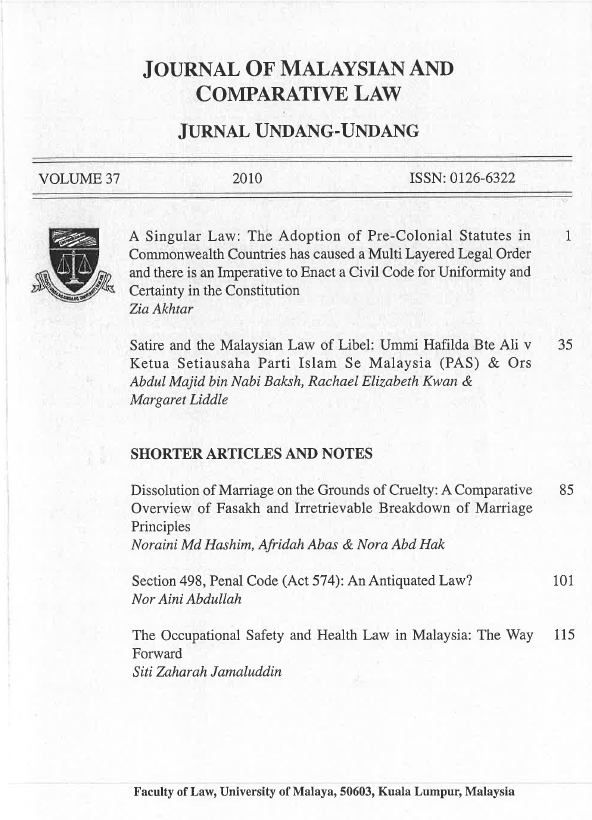A Singular Law
The Adoption of Pre-Colonial Statues in Commonwealth Countries has caused a Multi-Layered Legal Order and there is an Imperative to Enact a Civil Code for Uniformity and Certainty in the Constitution
Abstract
The Pakistani state adopted the Parliamentary model at its inception like many other countries that were governed by a codified common law. Its first constitution was the Government of India Act 1935 which it adopted as its framework. This has created a prerogative of powers for the executive which has often been the subject of abuse and abrogation of the constitution. The colonial era laws have been retained and the judicial status quo has not changed. The legal order is superimposed by additional layers of jurisprudence in the form of a Sharia law, regional courts laws and customary codes creating a Janus like legal system. In order to redress this ancient regime the jurisdictional question posed is can there be the creation of a civil code that is based on a one uniform law? The evaluation requires a comparison with Malaysia where the legal system also emanates from the British Parliamentary model. The analogy can be drawn and that has led to the derogation of power to a strong executive causing the denial of due process. By a process of evaluation it will be possible to reject the codified common law based on an outmoded constitution and to incorporate a framework in a civil code. This will inaugurate a civilised society that will achieve a rule of law that flows from a system that has expunged the fetters of the strong executive as grounded in the British constitution. This is an argument for a framework of a civil code that could promulgate a set of rules for a modern citizenship and identity that provides rights that are sui generis.
Downloads



